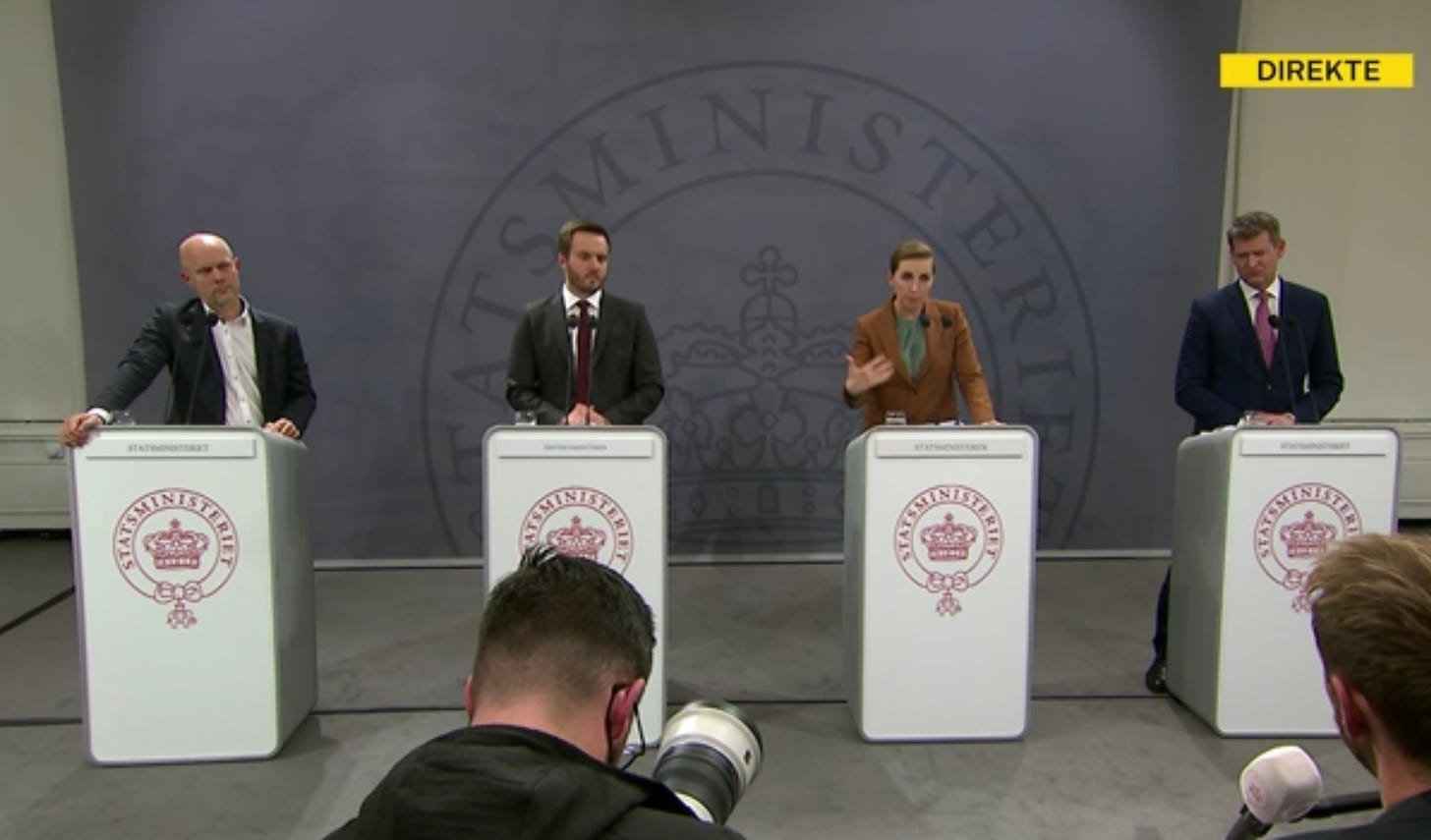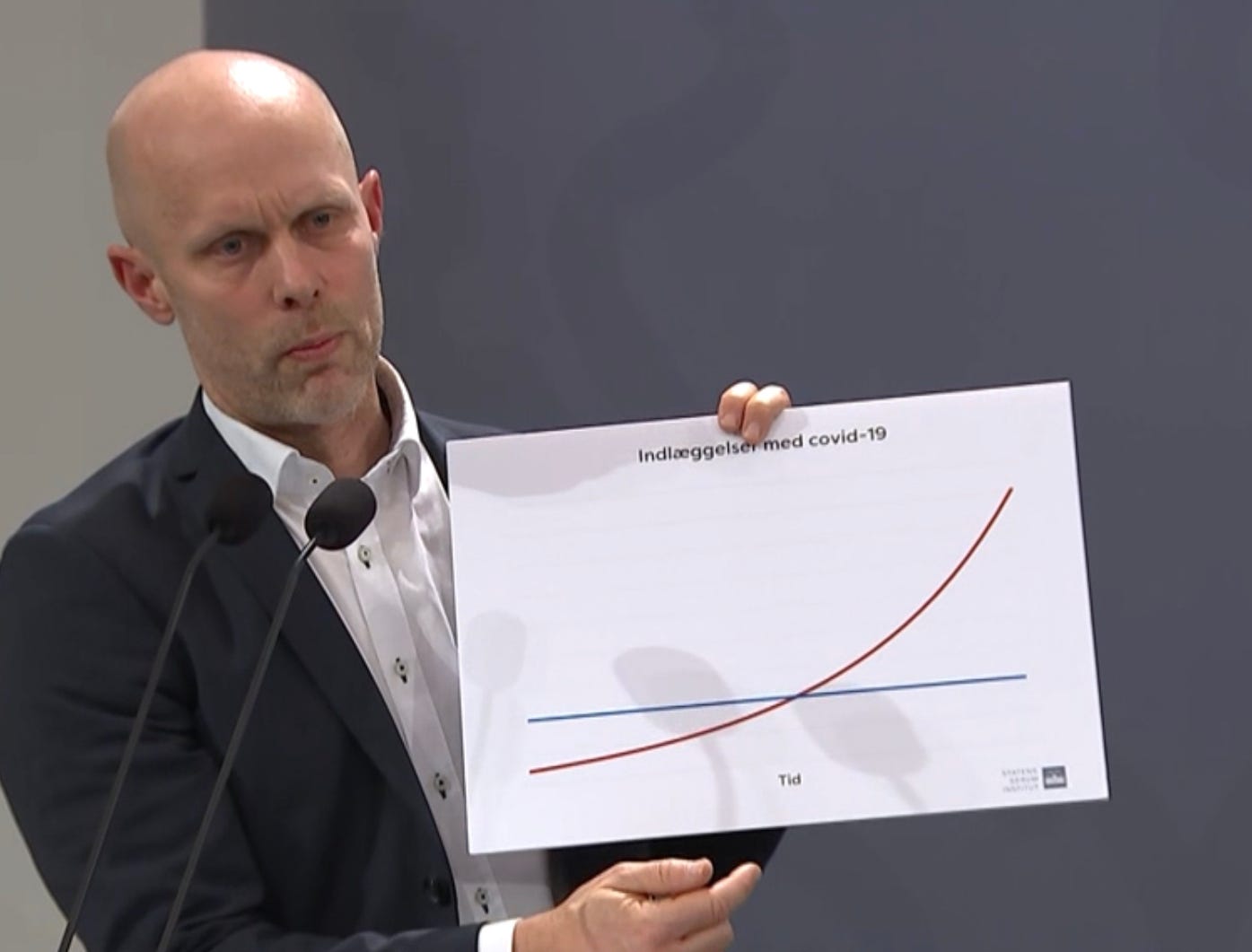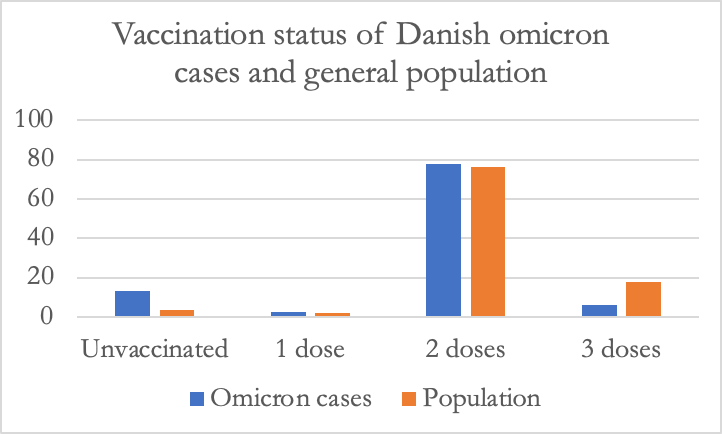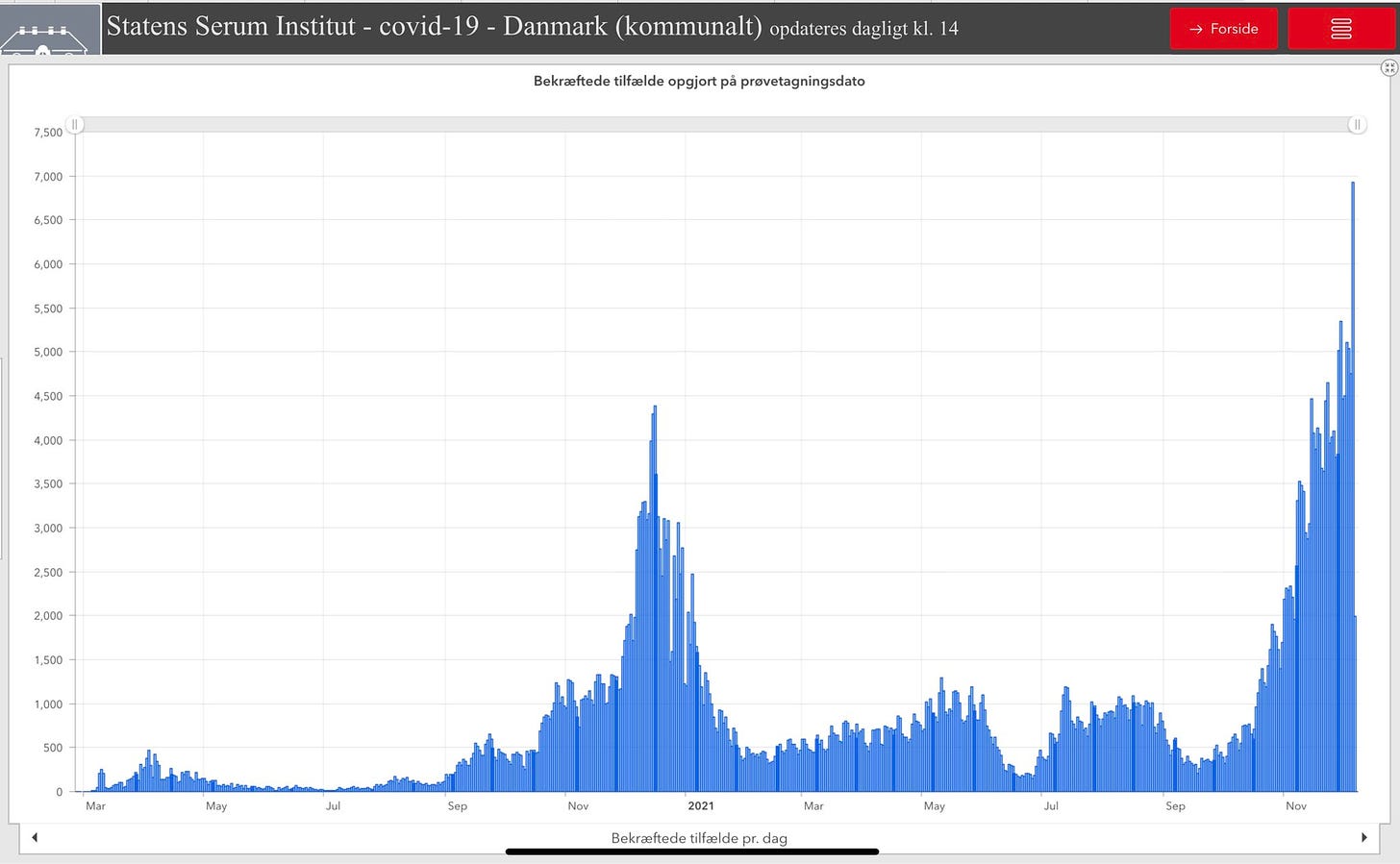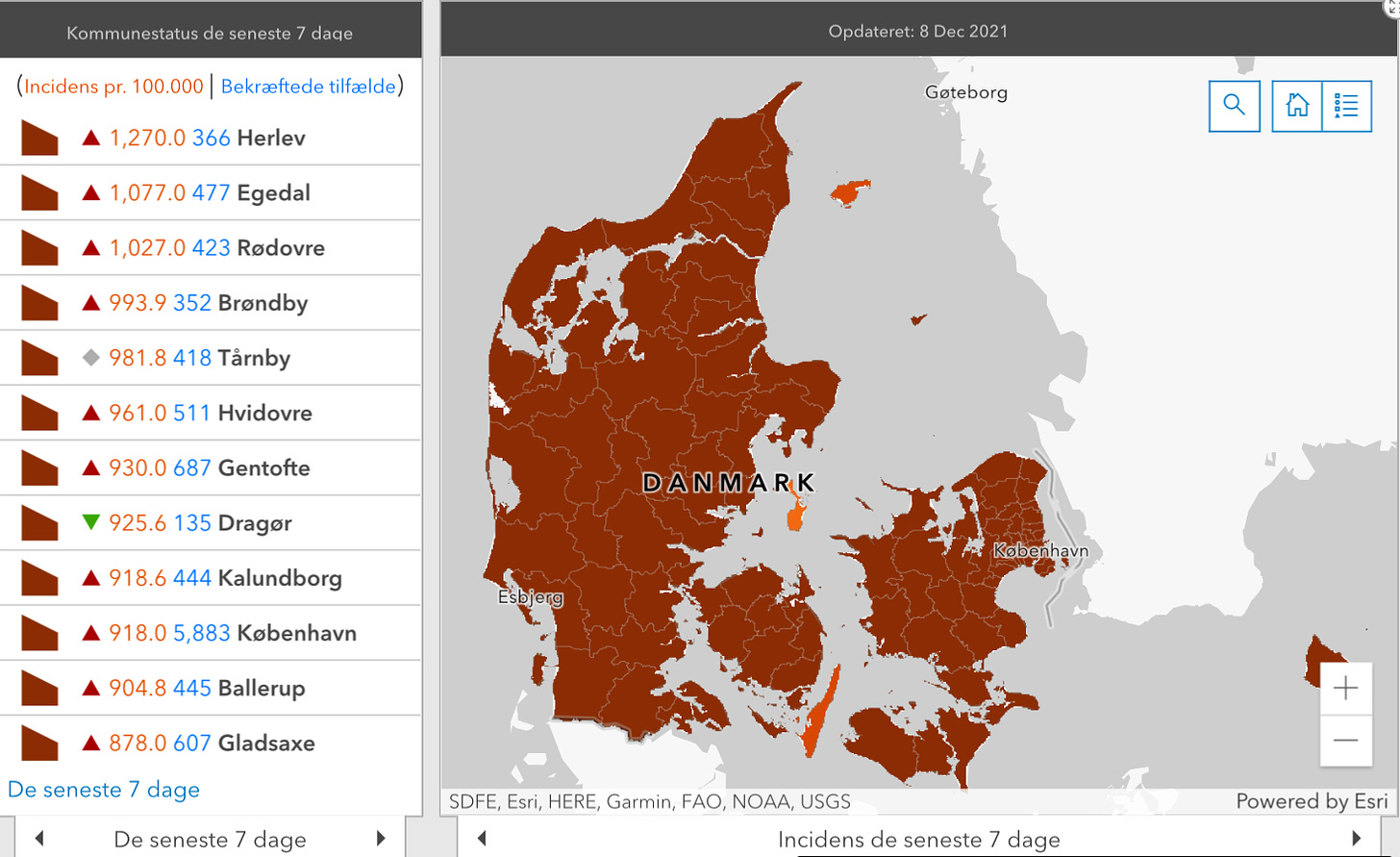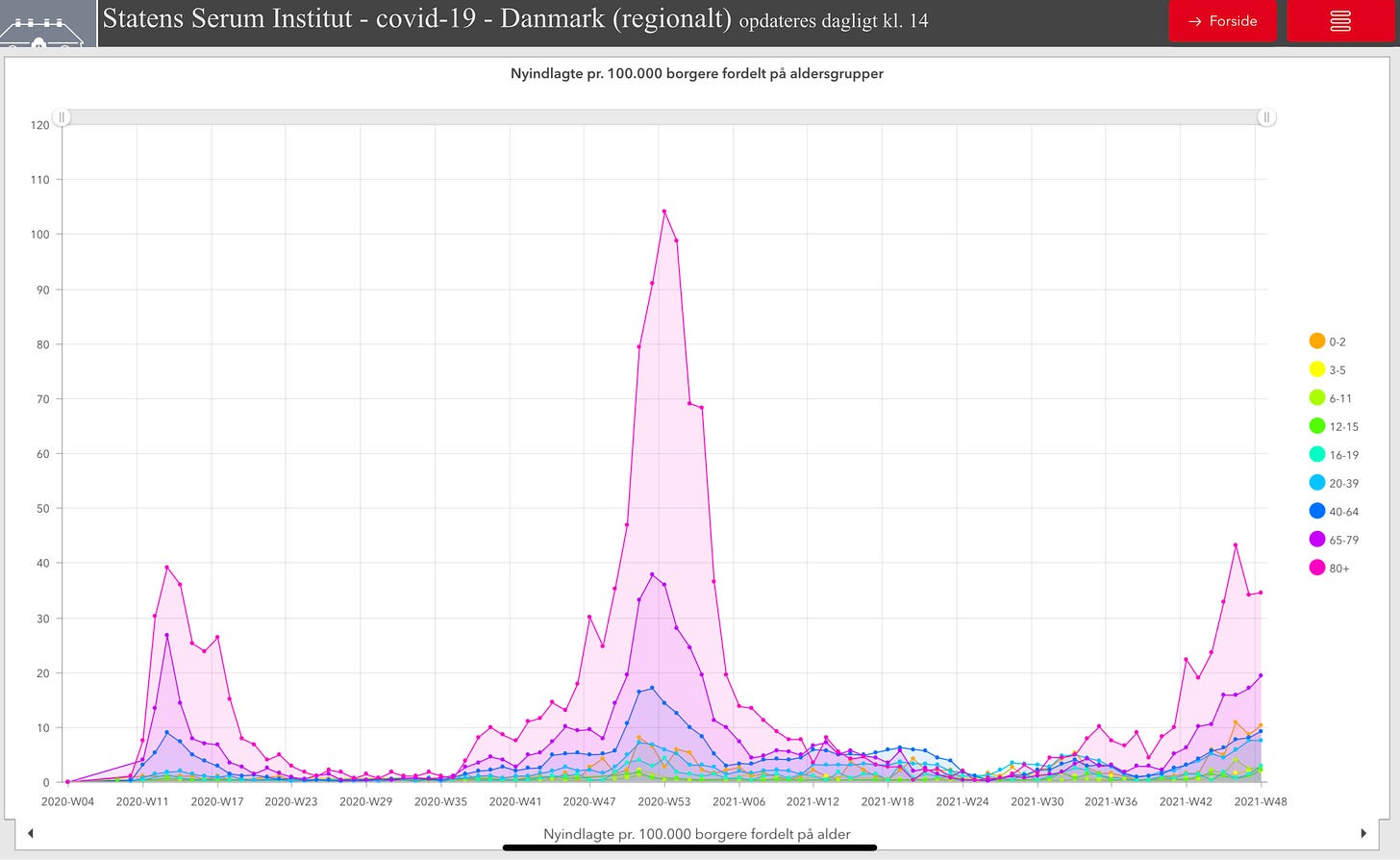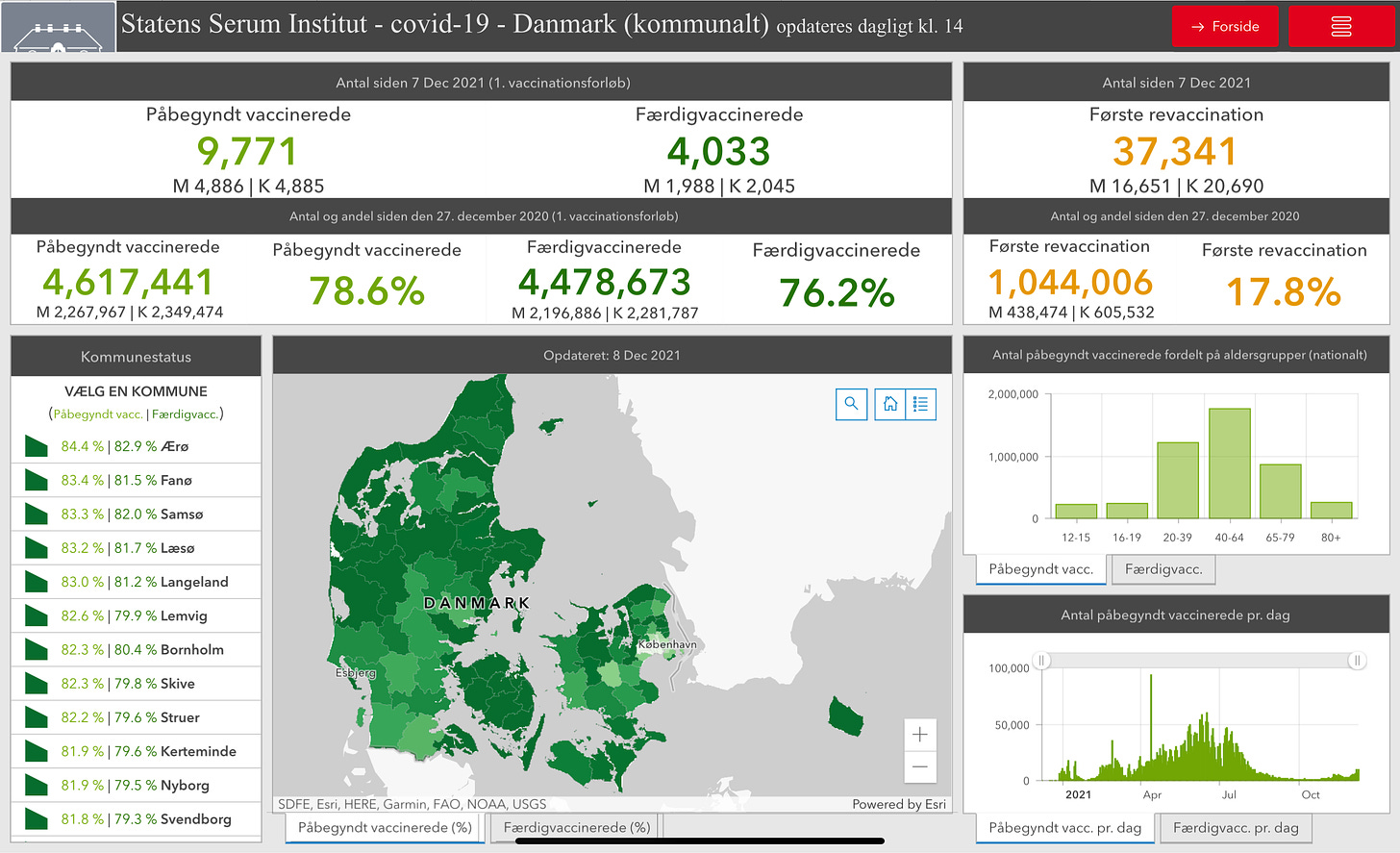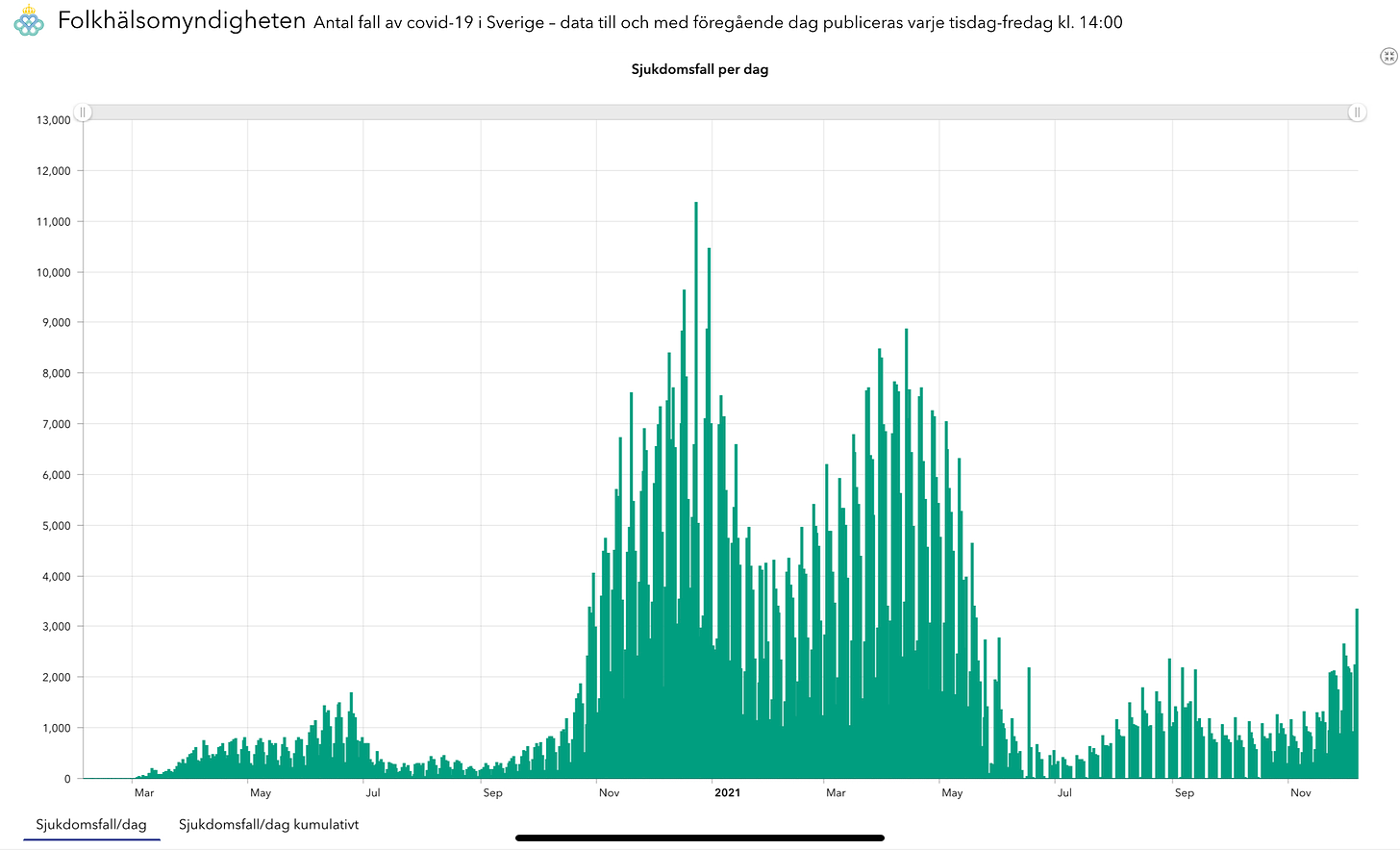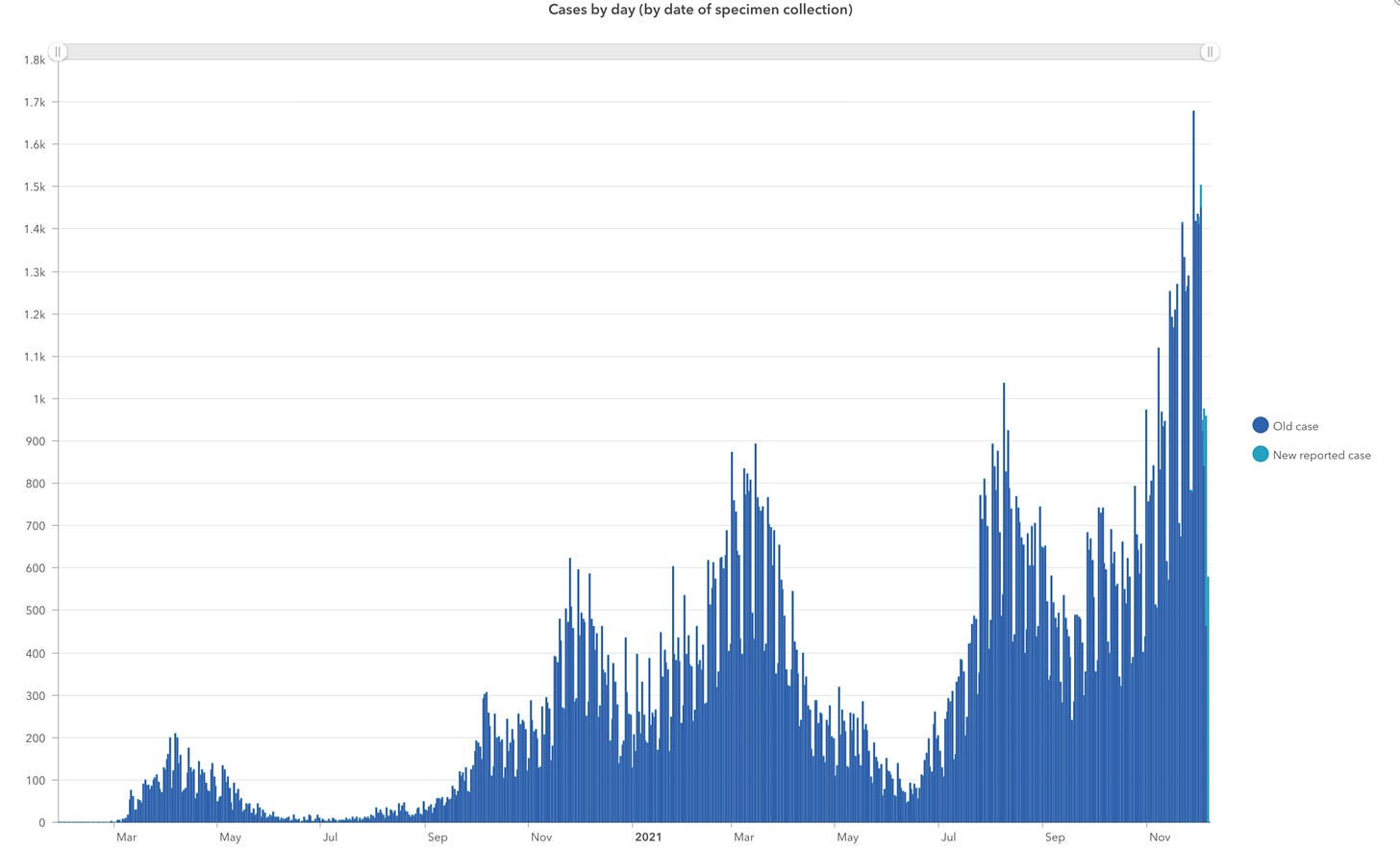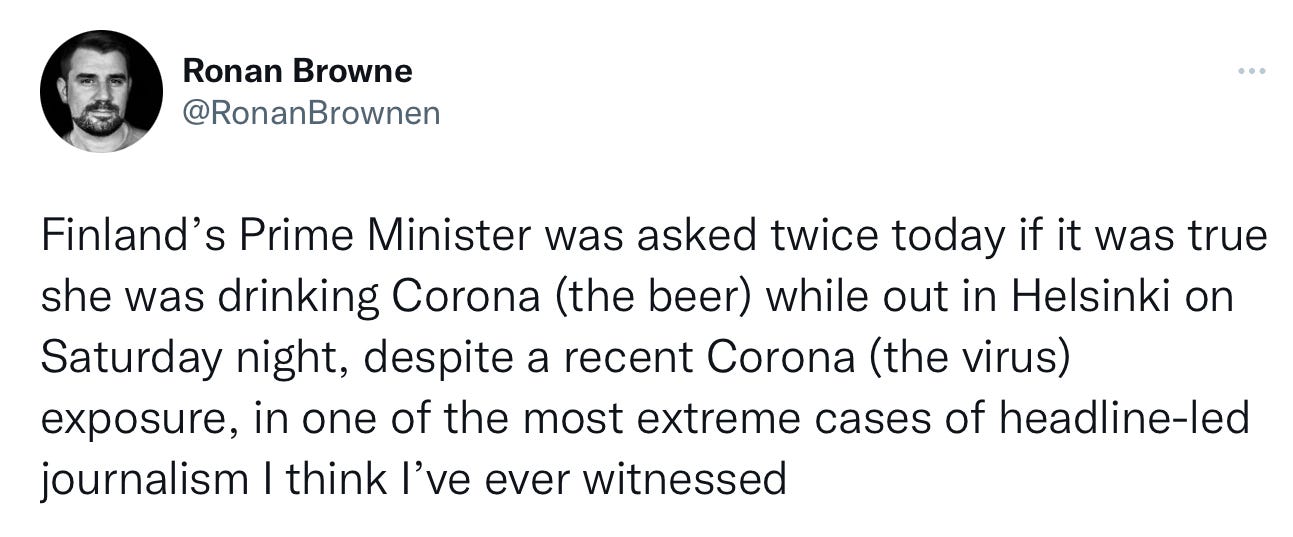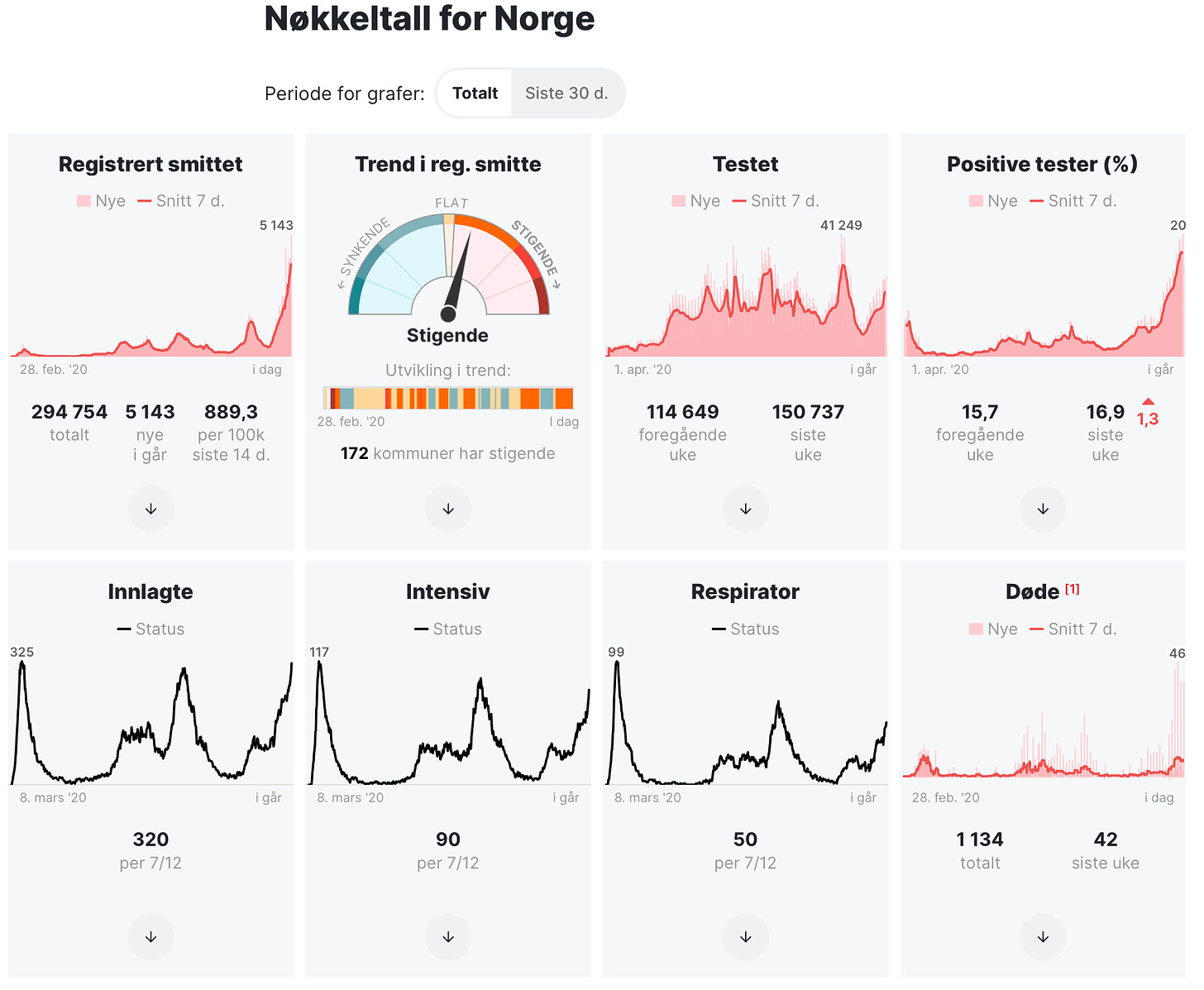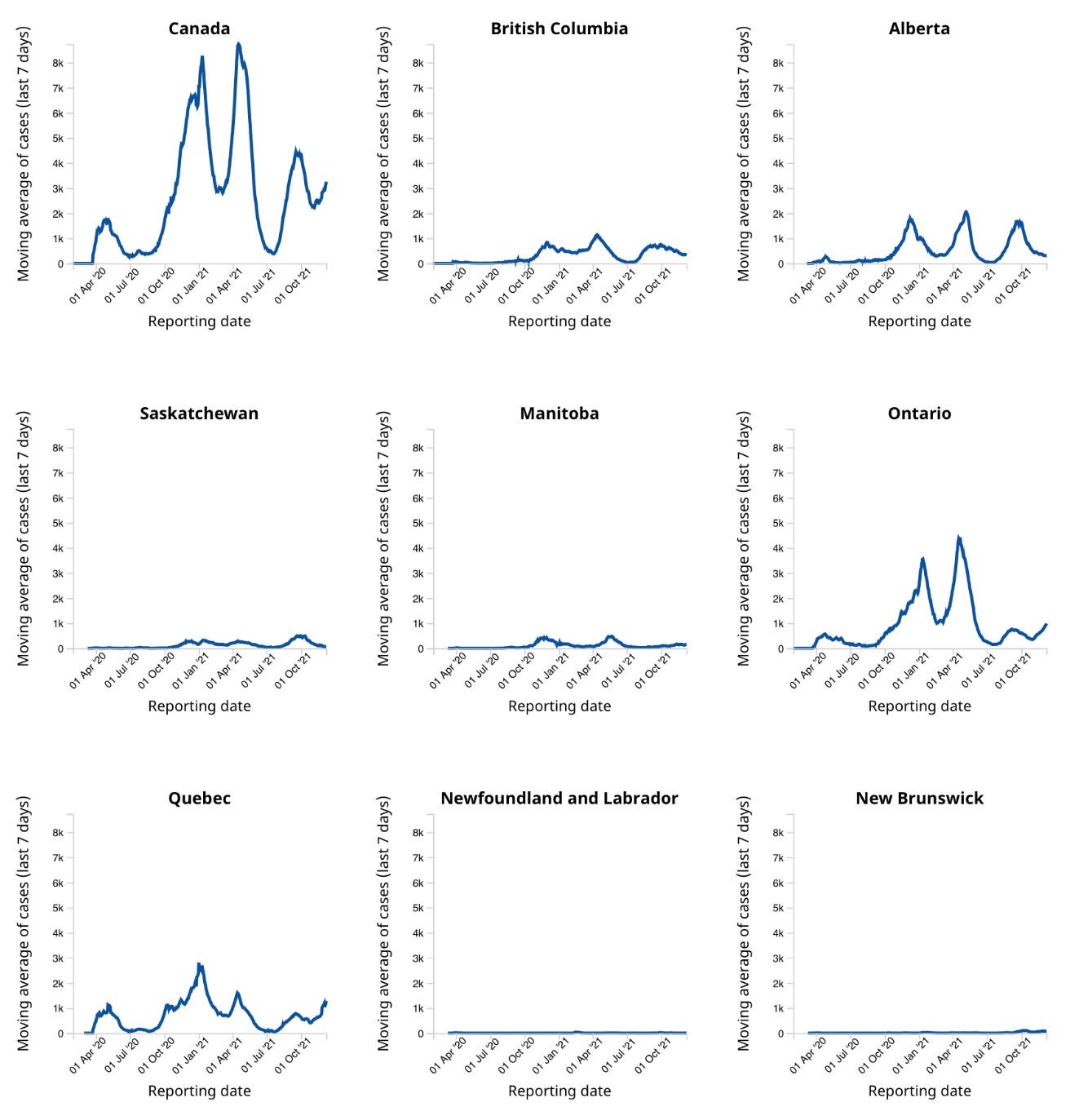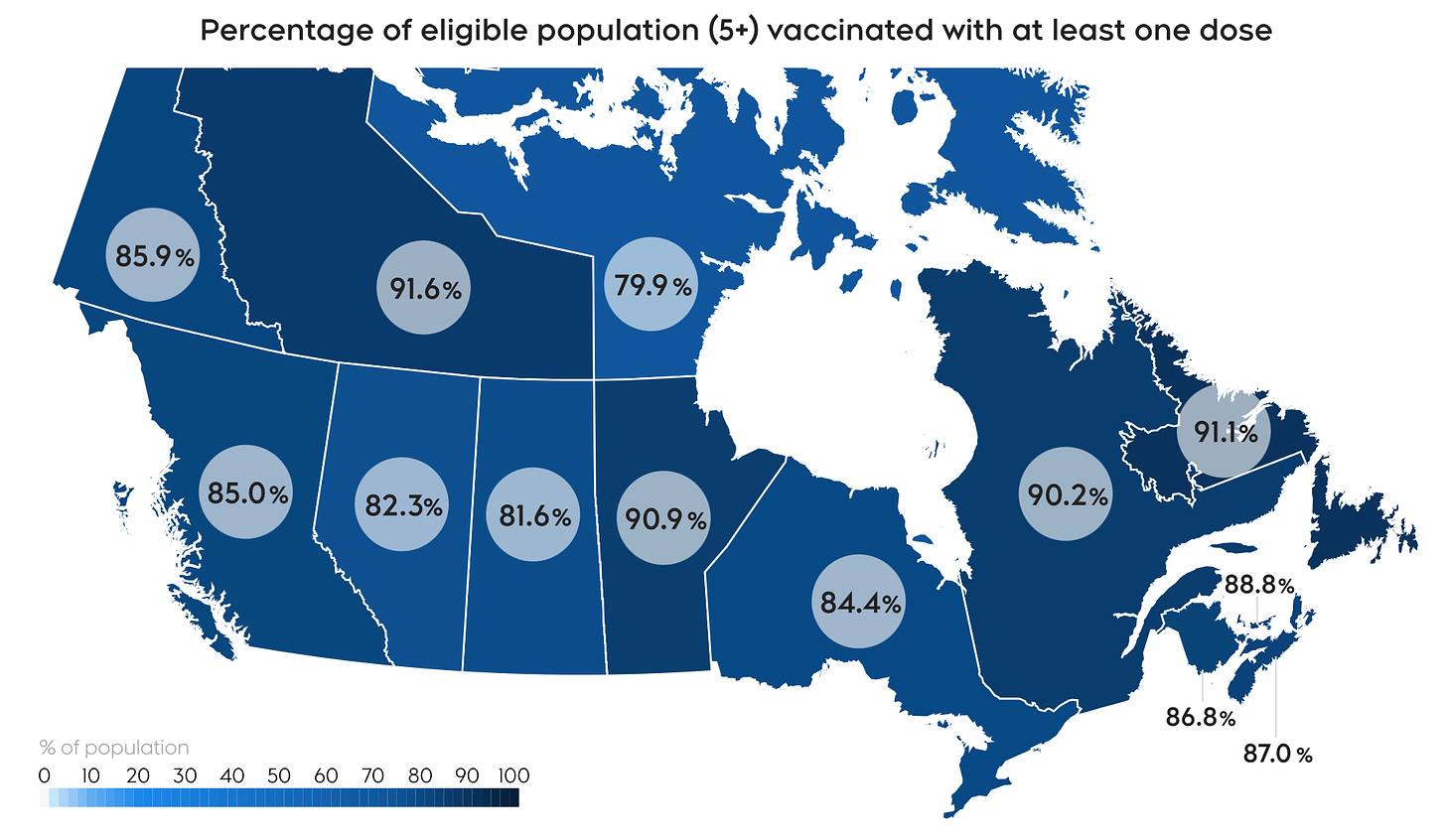🇩🇰
A number of COVID restrictions were introduced by Danish Statsminister Mette Frederiksen in a press conference on Wednesday but she stopped well short of even entertaining the idea of another national lockdown. Frederiksen cited vaccination rates as the main reason she thinks Denmark is in a better position today than when the last national lockdown was introduced.
“We do not stand for a real lockdown. It is still our assessment that it is possible to keep large parts of Danish society open.”
New restrictions as of December 10:
A mask must be worn when standing or moving from one place to another inside a restaurant. Restaurants also must require a coronapas to enter.
Nightlife is locked down. All bars, discos, and dance clubs must close.
All concerts and other events with more than 50 standing attendees are to be canceled.
All alcohol sales are to end at midnight.
Minister of Trade and Industry Simon Kollerup:
“These are new initiatives that should limit infection spread. I am glad that the Folketing supports this. That is the only responsible thing to do in this situation.”
The new restrictions have a four week shelf life and will be reassessed regularly by authorities.
Other measures
In mid-January, the coronapas will change so that two vaccination doses for everyone 18 years old and older will be valid for seven months and can only be extended by having a vaccine booster dose.
On the coronapas changes, Health Minister Magnus Heunicke, who is isolating after testing positive in Brussels, Belgium, said the change was needed to provide an incentive.
“The health authorities encourage everyone over the age of 18 to get a third dose. The coronapas will in future expire seven months after you have received the second plug, but will be valid again after the 3rd dose. The seven month duration takes into account that the immunity decreases over time and will hopefully also increase adherence to the vaccination program even more, so that the infection is kept in check.”
The ‘socially critical disease’ designation for the coronavirus, which gives the government the legal basis to levy restrictions, has been extended until at least February 11.
The mask mandate has also been extended until at least January 7.
Schools
All students in primary school (grades 0-10) are to be sent home December 15 where they will have classes online before breaking for Christmas on the 18. Online classes will resume January 2 before kids physically return to class on January 5.
Minister of Education Pernille Rosenkrantz-Theil spoke to DR:
“We know that it is difficult for the youngest children to do online classes, and I want to emphasize that for working parents you have the opportunity to get emergency care for your children, even if you work from home.”
At today’s news conference health officials did put a caveat in the plan, noting that there “is no guarantee” kids will return on January 5. Basically, if the infection situation is out of control and it cannot be done safety, then a physical return to class could be postponed.
Denmark’s vaccination centers will be busy through the holidays. One of the goals in order to bring children back to school as safely as possible in January is to get everyone vaccinated in the five to 11 year old age group between now and January 4. This is part of 1,145,688 total vaccination invitations that will be sent out over the next four weeks.
The Director of the Danish National Health Board Søren Brostrøm, is urging parents to move quickly when a vaccination invitation arrives for their child or children. Brostrøm says “it is a matter of days, not weeks” to protect unvaccinated children as the Omicron variant rapidly spreads across the country.
-
Record high infection numbers are not the driving motivation behind leveling new restrictions according to the Director of the Staten Serum Institut. Henrik Ullum says the primary concern is the new Omicron variant. Ullum cautions there is still a lot we don’t know about the variant, but the indicators we have so far are troubling. He says we have already seen proof on the ground here in Denmark of how infectious the new variant is as it spreads like wildfire.
“There are a larger number of children infected and they are hospitalized for a shorter time than we have seen in previous waves. There are also fewer who need oxygen. But it is too early to conclude that Omicron produces milder symptoms. We must assume that Omicron gives roughly the same symptoms as previous versions of the virus.”
His biggest worry is the potential impact on the already struggling hospital system. He notes that in South Africa hospitalizations increased 10-fold over the last four weeks as Omicron became dominant.
Ullum illustrated his concern with hospital admissions at the Wednesday news conference showing a hospitalizations graph where the blue line was the Delta variant and the red one represented Omicron.
“But because it enters into exponential growth, the number will mean that over time it risks reaching a really, really unpleasant level, and that is what makes us react.”
Ullum confirmed there are now six coronavirus patients in hospital in Denmark due to the new variant.
-
On the Omicron front, the new variant continues to explode in Denmark, with another 158 cases confirmed since Tuesday for a running total of 577 so far. In just 11 days, the variant has gone from two cases to being responsible for 2% of all new infections.
Graph courtesy of Political Science Professor Michael Bang Petersen/Twitter
-
Denmark is reporting 6,629 COVID infections and seven more coronavirus deaths in the last day.
Yesterday there were 432,892 total corona tests done, of which 198,223 were PCR tests equaling a positivity percentage of a very high 3.34%.
Worth noting that as measured by the date a corona test was taken, that Denmark recorded its highest ever number of COVID infections, 6,931, this past Monday.
-
The Danish Health Ministry says the epidemic situation is concerning. It notes 27 of Denmark’s 98 municipalities have a COVID incidence rate per 100,000 residents of 750 or more.
75 kommunes are currently over infection thresholds triggering local infection reduction measures.
-
COVID hospitalizations (461) declined slightly (-4) while the number of infected people in an ICU (66) was unchanged day to day and of those the number on a ventilator (38) inched downward (-1).
-
On the vaccination front there were 51,145 total inoculations yesterday with most (37,341) being booster shots. 9,771 people had a 1st vaccine dose yesterday.
So far, 78.6% of the total population have had one vaccine dose, 76.2% have had two, and 17.8% have had a booster dose.
-
Businesses and companies should cancel any julefrokost (a traditional Danish Christmas party) planned for the weeks ahead. That is the message from the Director of the Danish National Health Board at Wednesday’s news conference.
Søren Brostrøm:
“There is an urgent call for companies to cancel larger events such as the usual seasonal julefrokost.”
However, Brostrøm said private Christmas events are good to go, with some precautions. He recommends everyone in attendance who can should be vaccinated. Brostrøm also advised getting a COVID test just before getting together with friends and family just in case.
“And then you have to tell guests that they should stay home if they are feeling sick and they are coughing.”
There have been a number of julefrokost related outbreaks across Denmark in the last week or two.
🇸🇪
Sweden has added 3,335 infections and another seven corona deaths since yesterday’s update.
To date, 7,640,880 1st vaccine doses (84.6% of the population 12 years old and older) and 7,226,767 (80%) 2nd doses have been administered of those who are fully vaccinated 1,498,873 (18% of the eligible population 18 years old and older) have had a booster dose.
-
Hospitals in at least one Swedish county are shifting staffing to better respond to rising infection numbers and any impending COVID wave.
Jönköping Health and Medical Care Director Mats Bojestig:
“We have now decided on the staffing situation at our three hospitals. We have once again activated regional special healthcare management, in order to have the opportunity to pool healthcare resources for patients with COVID. We are seeing a slow but alarming increase in the number of residents who are infected and need hospital care and we must be prepared to respond to that.
Currently, staffing protocols are in the lowest standby mode with the ability to shift things into what the region calls “reinforcement mode” and then if things get really bad, then staffing goes to “disaster mode.”
🇫🇮
Finland registered 1,296 infections and 11 virus deaths in the last day.
COVID hospitalizations (309) have jumped (+32).
To date, 76.6% of the total population have had one vaccine dose, 72.4% have had two, and 6.7% have had a booster dose.
-
Finland’s Prime Minister, Sanna Marin, has said sorry after she went clubbing into the wee hours of the morning last Saturday, leaving her work phone at home. That in itself is not a problem. The problem was that her foreign minister had tested positive and Marin was a close contact. Messages to her work phone telling her to isolate and get tested ASAP went unnoticed until Sunday morning as she partied the night away.
In an apologetic Facebook post, Marin said she was initially told she did not need to isolate because she was vaccinated, but admitted she totally missed messages to the contrary. The Prime Minister did get a COVID test on Sunday, which came back negative.
From YLE Journalist Ronan Browne:
🇳🇴
Norway has added 5,143 infections and 38 more corona deaths since yesterday’s update.
COVID hospitalizations (320) ICU numbers (90) and those on a ventilator (50) are all unchanged.
To date, 78.8% of Norwegians 12 years old and older have had one vaccine dose, 71.6% have had two, and 14.9% have had a booster dose.
-
The Norwegian Institute of Public Health says it has confirmed 33 cases of the Omicron variant so far. However, the health agency notes it has 182 positive test results suspected to be the new variant. Those are awaiting genome sequencing test results.
🇬🇧
COVID restrictions also made a return to the United Kingdom. British Prime Minister Boris Johnson has activated a so-called Plan B to combat rising infection numbers and a rapidly spreading Omicron variant. Beginning Friday masks will be mandated in most public indoor spaces, in nightclubs, and anywhere else where there are crowds. The coronapas requirements are also returning and people in Britain are being encouraged to work from home if possible.
According to the UK Health Security Agency, there are 568 confirmed Omicron cases so far, but it notes case numbers are doubling every two to three days. The agency warns the new variant could become the dominant strain in the UK within three to four weeks.
💉🌍
Pfizer/BioNTech said a booster dose will likely be required to combat the new Omicron variant. In a statement released on Wednesday, the pharmaceutical company said data from ongoing trials indicate three doses of the Pfizer vaccine boost immunity to offer full protection against the new variant, much the way two doses have for other variants so far.
Studies are beginning to emerge in the last 24 hours that all show the Omicron variant can evade immunity from vaccination or a previous infection to a higher degree than any variant yet.
I would caution here that we are still dealing with a partial picture and it will take weeks if not months to fully understand this new strain.
🇨🇦
Canada reported 2,971 COVID infections on Tuesday and another 27 coronavirus deaths.
On the vaccination front so far, 31,116,778 1st vaccine doses (81.38% of the total population) have been administered while 29,127,045 people (76.18%) are fully vaccinated and of those 1,987,037 have received a booster dose.
In Ontario there were 1,009 new infections on Wednesday, with 443 of them being people who had one dose or none at all. There are 333 people in hospital, of which 258 are either not vaccinated or have a single dose. For the additional 155 people in an ICU, that number is 131.
Quebec reported 1,367 new COVID cases on Wednesday.
In Atlantic Canada, New Brunswick had 111 infections. Nova Scotia had 34. Newfoundland and Labrador had five.
Manitoba saw 178 infections and three more deaths as pressure mounts on hospitals.
There were 48 new corona cases and two more deaths in Saskatchewan on Thursday as the province announced its first four cases of the Omicron variant.
Alberta logged 240 new infections and five more deaths on Tuesday. There are 373 people in hospital Including 76 in intensive care.
B.C. registered 326 coronavirus cases and one more fatality. There are 242 people in hospital, of which 82 are in an ICU. 80% of those in intensive care are not fully vaccinated.




